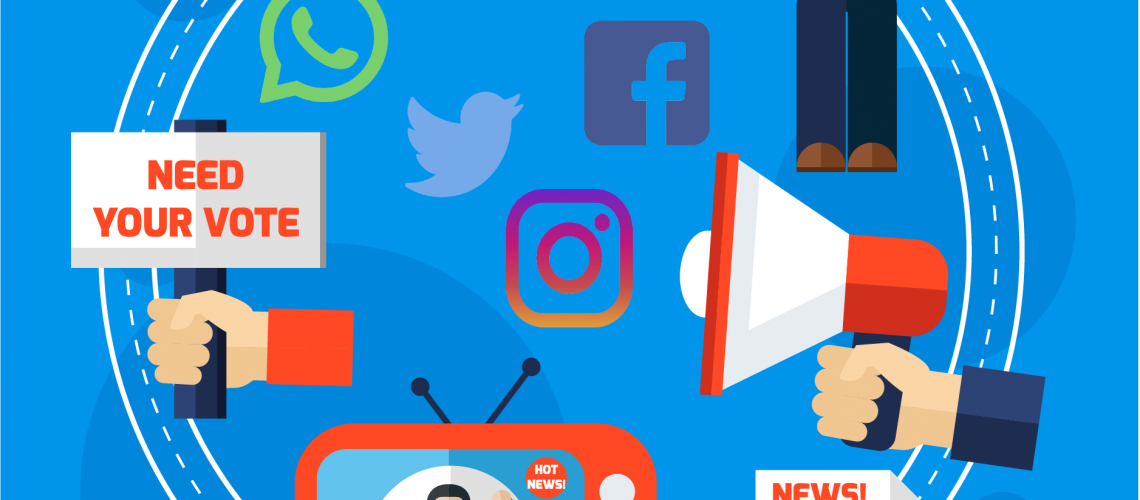Impact:
-
Wider Reach: Social media platforms have an extensive global reach, enabling political candidates to connect with a broader and more diverse audience than traditional campaigning methods.
-
Engagement: Social media allows candidates to engage directly with voters through posts, videos, live streams, and interactive features, fostering two-way communication.
-
Fundraising: Platforms like Twitter, Facebook, and Instagram facilitate political fundraising, enabling campaigns to quickly reach donors and supporters.
-
Information Dissemination: Social media serves as a rapid information dissemination tool, allowing candidates to share their policies, stances, and news updates in real-time.
-
Mobilization: It empowers political parties and grassroots movements to mobilize volunteers, organize events, and rally supporters efficiently.
-
Voter Education: Social media provides a platform for educating voters on election processes, candidates, and important issues, contributing to an informed electorate.
-
Youth Engagement: It has been effective in engaging younger demographics who are more active on social media, making politics more accessible to the younger generation.
-
Issue Advocacy: Social media enables the amplification of advocacy for specific issues, leading to increased public awareness and potential policy change.
Challenges:
-
Disinformation and Fake News: Social media can be a breeding ground for disinformation and fake news, leading to misinformation, confusion, and polarization among voters.
-
Privacy Concerns: The collection and use of personal data for targeted advertising and political campaigns have raised concerns about privacy and data security.
-
Filter Bubbles: Algorithms on social media platforms may create filter bubbles, where users are exposed to content that reinforces their existing beliefs, limiting exposure to diverse perspectives.
-
Algorithmic Manipulation: There are concerns about the manipulation of algorithms and the spread of propaganda to influence public opinion and behavior.
-
Cybersecurity Threats: Elections are vulnerable to cybersecurity threats, including hacking and disinformation campaigns that aim to disrupt the democratic process.
-
Online Harassment: Politicians and voters may face online harassment and abuse, discouraging individuals from participating in political discussions.
-
Partisan Polarization: Social media can intensify political polarization by promoting extreme viewpoints and discouraging compromise.
-
Lack of Regulation: The rapid evolution of social media has outpaced regulatory frameworks, leading to a lack of oversight and accountability.
Mitigation and Regulation:
-
Fact-Checking: Independent fact-checking organizations and initiatives help identify and combat misinformation and fake news.
-
Transparency: Social media platforms can implement transparency measures to disclose political advertising spending and the sources of funding.
-
Regulatory Frameworks: Governments can establish regulations to address privacy, disinformation, and campaign finance issues in the digital sphere.
-
Media Literacy: Education on media literacy and critical thinking can help individuals navigate the online information landscape more effectively.
-
Collaboration: Governments, tech companies, and civil society organizations can collaborate to address the challenges of social media in elections.
The impact of social media in modern elections is undeniable, with both positive and negative aspects. Addressing the challenges and ensuring that social media remains a force for positive democratic engagement will be an ongoing task for governments, tech companies, and civil society.




Comments (0)